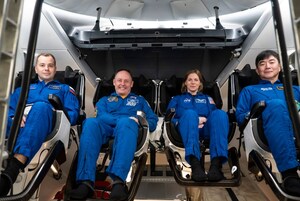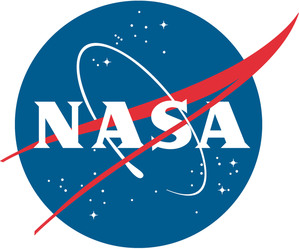
WASHINGTON, July 7, 2014 /PRNewswire-USNewswire/ -- College and university students from across the country are taking science to greater heights thanks to a new NASA program.
The Undergraduate Student Instrument Program (USIP) is an educational flight opportunity sponsored by NASA's Science Mission Directorate (SMD) to promote science, technology, engineering and mathematics (STEM) by providing a hands-on Earth or space science flight project experience. The program is helping to developing tomorrow's STEM workforce by sponsoring undergraduate-led, multi-disciplinary university teams to conduct, develop and fly a science payload on NASA suborbital platforms.
Ten U.S. college and university team proposals were selected for USIP's initial year. NASA provided suborbital-class platforms, including sounding rockets, balloons, aircraft, zero-g aircraft and suborbital reusable launch vehicles at no cost to the teams.
"USIP challenges students to apply their academic skills to a real problem. The lessons they learn will help them be better prepared for today's workforce," said Marc Allen, SMD's deputy associate administrator for research at the agency's headquarters in Washington.
The selected science teams are building and testing their instruments under the direction of faculty advisors and will launch on these suborbital platforms:
Scientific Balloon:
- University of Virginia, Charlottesville, Virginia – CubeSat Cosmic Ray Dosimeter
- Utah State University, Logan, Utah, and University of Maryland Eastern Shore, Princess Anne, Maryland – Measurements of Red Line Airglow (RLAGS)
- Catholic University of America, Washington, D.C. – Real-time attitude determination system for scientific balloon
Small Balloon:
- Gannon University, Erie, Pennsylvania – Cosmic Ray Calorimeter
Weather Balloon:
- University of Houston, Houston, Texas – Auroral ionosphere and stratosphere study using smartphone technology
Parabolic Aircraft Flight:
- Carthage College, Kenosha, Wisconsin – Propellant measurement techniques
- University of Central Florida, Orlando, Florida - Microgravity experiment on accretion in space environments
Sounding Rocket:
- West Virginia University, Morgantown, West Virginia - Ionospheric response to interplanetary disturbances during magnetic storms.
Airborne Science:
- Louisiana State University, Baton Rouge, Louisiana, and A&M College, College Station, Texas – Microbial aerosol sampling
Commercial Carrier:
- Carnegie Mellon University, Pittsburgh, Pennsylvania – Multi-modal, high-resolution mapping
The first of the suborbital launches occurred in June 2014 and launches will continue through spring 2015. The USIP is managed through NASA's Goddard Space Flight Center's Wallops Flight Facility Advanced Projects Office in Virginia.
For more information about NASA's Science Mission Directorate, visit:
Logo - http://photos.prnewswire.com/prnh/20081007/38461LOGO
SOURCE NASA






Share this article